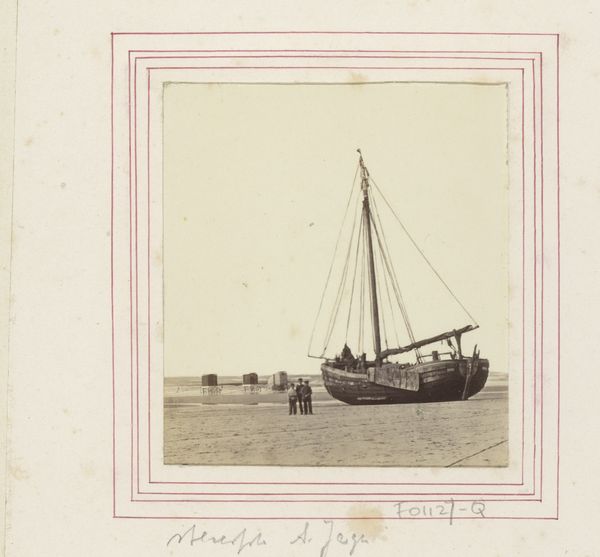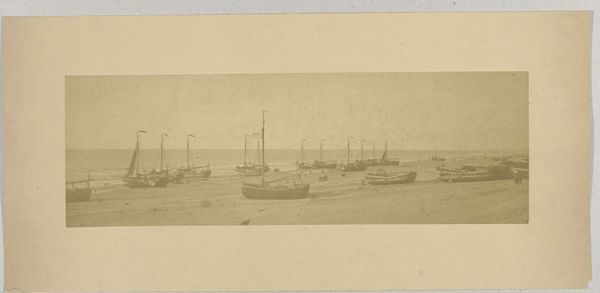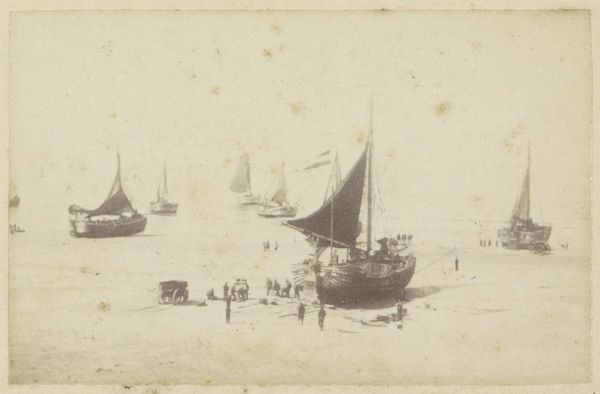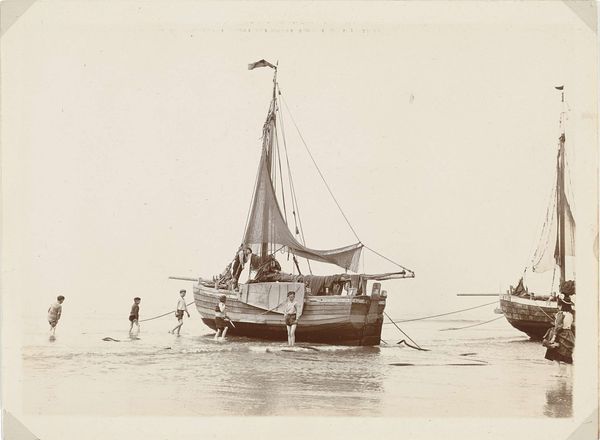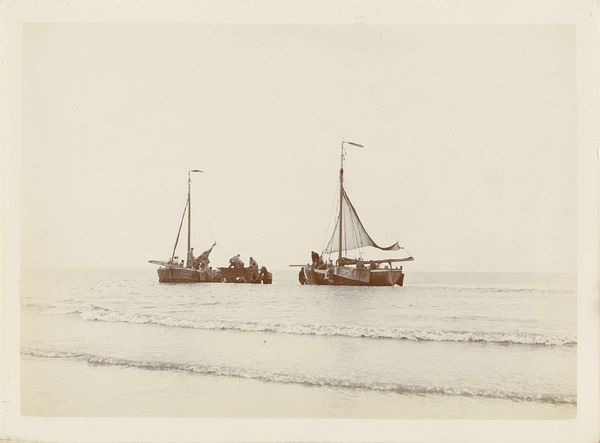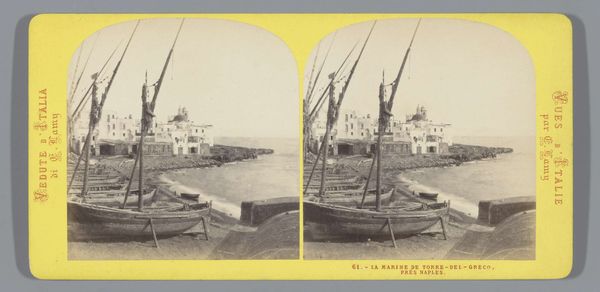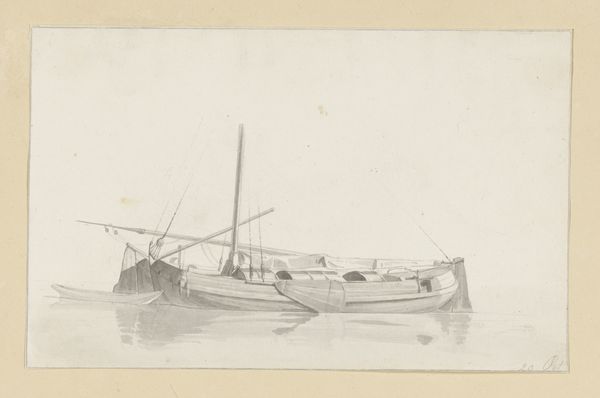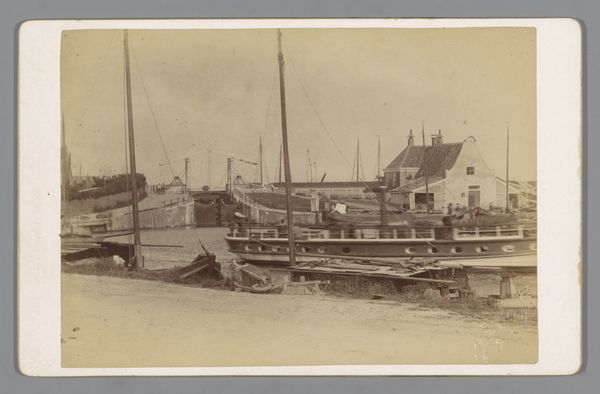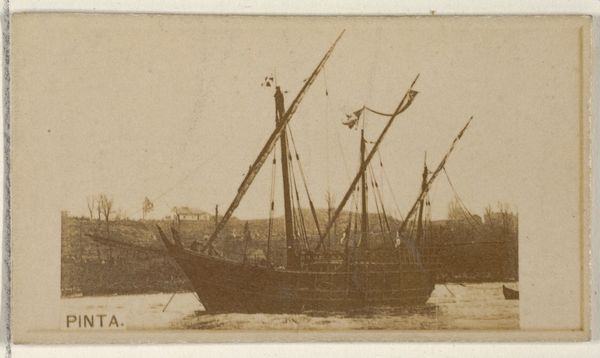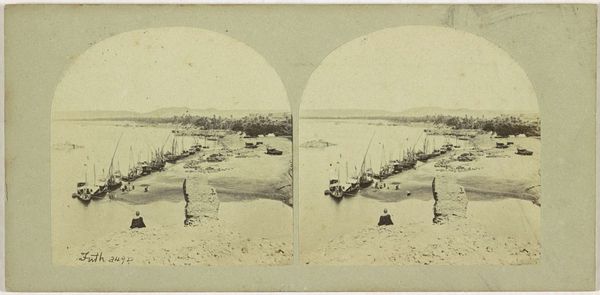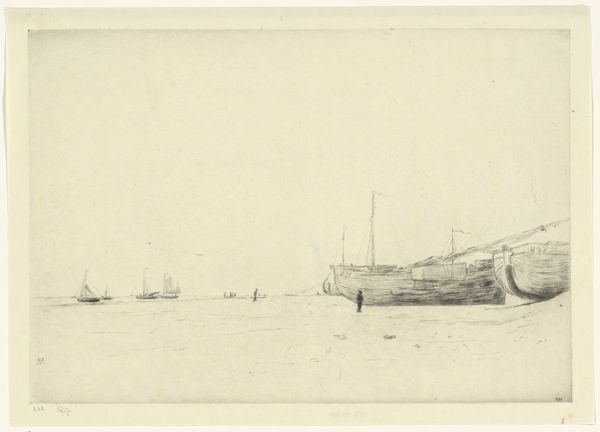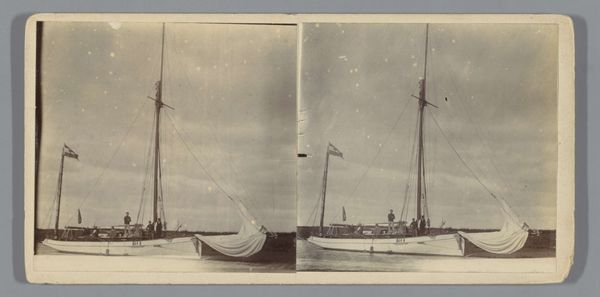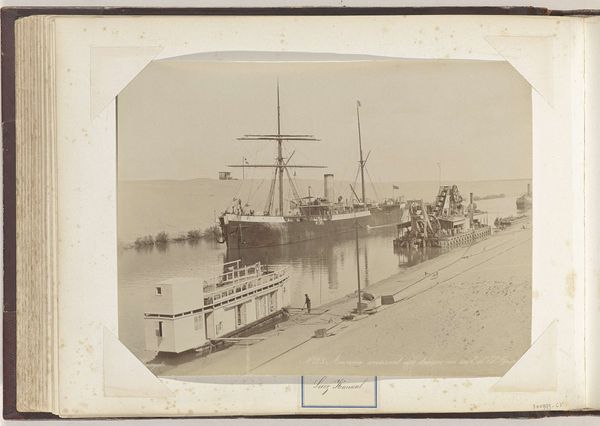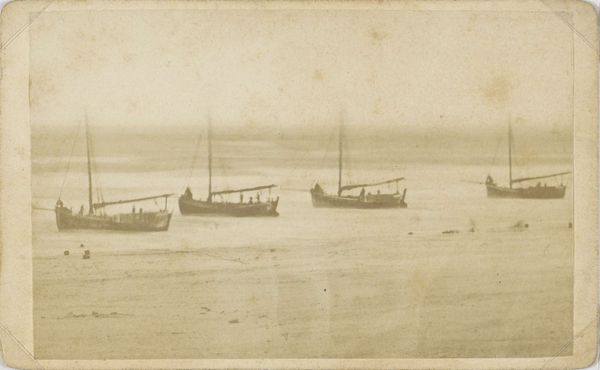
print, photography, gelatin-silver-print
#
ship
# print
#
landscape
#
photography
#
coloured pencil
#
gelatin-silver-print
#
realism
Dimensions: height 83 mm, width 170 mm
Copyright: Rijks Museum: Open Domain
This stereograph, by Pieter Oosterhuis, shows a ship on the beach at Scheveningen, rendered with a photographic process. Stereographs like this one became very popular in the mid-19th century, and were made through a fascinating combination of science and industry. Two lenses, set slightly apart on a camera, imitated the binocular vision of the eyes, creating a subtle dimensional effect when viewed through a special device. The resulting images were printed on albumen paper, which gave a wide tonal range. Photography itself was a new kind of industry at this time, dependent on advances in chemistry, optics, and printing. Though marketed as entertainment, stereographs also played a role in disseminating knowledge and shaping public opinion. Here, we see an image capturing the labor and industry surrounding shipbuilding and maritime activities. The great achievement of photography was its ability to capture subjects with remarkable precision. By looking closely at how photographs like these were made, and the context in which they circulated, we can begin to understand their unique historical significance.
Comments
No comments
Be the first to comment and join the conversation on the ultimate creative platform.
